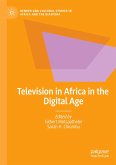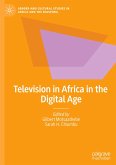This book charts the history of how biological evolution has been depicted on British television and radio, from the first radio broadcast on evolution in 1925 through to the 150th anniversary of Charles Darwin's Origin of the Species in 2009. Going beyond science documentaries, the chapters deal with a broad range of broadcasting content to explore evolutionary themes in radio dramas, educational content, and science fiction shows like Doctor Who. The book makes the case that the dominant use in science broadcasting of the 'evolutionary epic', a narrative based on a progressive vision of scientific endeavour, is part of the wider development of a standardised way of speaking about science in society during the 20th century. In covering the diverse range of approaches to depicting evolution used in British productions, the book demonstrates how their success had a global influence on the genres and formats of science broadcasting used today.
"An important intervention that will help to advance our understanding of science broadcasting in Britain. ... This quality ... will attract scholars interested in science communication, the cultural history of evolution, and media history, to name just a few. ... Overall, this is a fascinating cultural and intellectual history ... of the twentieth century, one which will stimulate further research on the history of science communication and will be indispensable for undergraduate reading lists on the topic." (Max Long,H-Net Reviews, h-net.org, April, 2022)








